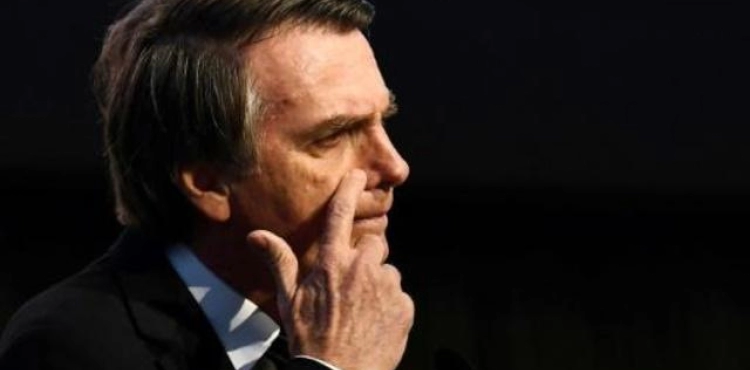Brazilian President-elect Javier Paulsonaro, who takes office on Jan. 1, promised to make radical changes to Latin America´s largest economy after 15 years of left-wing domination of power. .
If the far-right president is able to count on the overwhelming popularity he enjoys (75% of Brazilians consider his decisions so far to be in the right direction), enormous challenges lie ahead for his government:
Brazil is an exporting power, but it has just emerged from a historic recession that has wiped out all the benefits the country enjoyed during its 10-year boom.
Paulsonaro entrusted the economy portfolio of his next government to Paulo Gédés, who advocates an extreme liberal policy and was entrusted with a series of reforms aimed at reducing public debt (amounting to 76 percent of GDP in October). The reforms are mainly based on the privatization of a number of public institutions, the restructuring of the tax system and the adoption of a policy to stimulate foreign investment in the country.
One of the most difficult challenges for the Polsonaru government would be to reform the pension system, because that would require amending the constitution.
The "Liberal Social Party" led by the president-elect does not have a majority in Congress, which means that any reform in parliament will force it to ally itself with a number of conservative parliamentary blocs.
The reforms are a "real challenge," says the consultancy group Eurasia Group, arguing that Paulsonaru´s strong support could provide him with the necessary votes in parliament to pass these reforms, especially if he is to vote quickly. At the same time, "A lot of drama."
"Paulsonaru is facing problems in implementing his tax program," US economist Maira Rodriguez Valadares of MR Associates expects.
As Brazil exports large amounts of oil, the fall in black gold prices in December coupled with the economic slowdown in China, Brazil´s largest trading partner, has added to the problems facing the Brazilian economy.
For longer-term goals, such as investment in infrastructure and vocational training, they are largely marginalized, says Rodriguez Valadares.
Paulsonaro is expected to be partly inspired by his foreign policy from US President Donald Trump´s policy, especially since the elected Brazilian president offers no opportunity but to admire his American counterpart.
Even before taking office, Paulsonaro announced his intention to withdraw his country from the Global Migration Charter and could do the same for the Paris Climate Convention.
The former officer is also likely to order the transfer of the Brazilian Embassy in Israel from Tel Aviv to Jerusalem, as Trump did.
On the other hand, Paulsonaro does not look favorably on Chinese investment in his country. He has already announced that his government will do all it can "within the framework of democracy" to address the socialist governments of Cuba and Venezuela.
In response to a question on whether Paulsonaru risks straining relations with Venezuela by adopting a tough policy, American expert on international relations Ryan Lloyd, a researcher at the University of São Paulo, answers that the president-elect "lacks foreign policy expertise and his team too, The issue into an international crisis, could end in a very bad way. "
Internally, Paulsonaro has vowed to combat organized crime, a scourge that has plagued the country for decades, and has also promised to eradicate corruption that is scorching the political class.
The president-elect also plans to ease the rules of arms for "good people", raising fears of rising violence in a country where some 64,000 murders have been recorded in 2017.
Paulsonaro also plans to ease police restrictions on their use of fire, which means they have a greater margin of impunity in a country where 5,000 people are killed every year by police.
In the fight against corruption, the incoming president assigned the justice portfolio to Sergio Moro, the judge who took up the case of "quick washing," the broad investigation that exposed a large network of corruption linked to Petrobras, a state oil group that shook the entire political class.
One of the most prominent verdicts issued by Moro was his conviction in July 2017 by former leftist President Luis Inacio Lula da Silva.
But corruption is deeply rooted in Brazil´s political class, and any corruption suspicion about close associates of the president-elect or his party may tarnish his image. The government agency responsible for monitoring financial transactions has finally opened two investigations on suspicion of paying suspicious sums to someone close to the president.
In domestic affairs, the environmental protection file, especially the Amazon, is the green lung of the planet, another challenge for Poulsonaru, who has already announced his intention to put mining and agricultural interests before environmental protection.
Expecting a "dangerous period" in the era of the extreme right-wing president who did not hide his nostalgia for the time of the military dictatorship (1964-1985), Ryan Lloyd warned that the Paulsonaru era could see "a decline in democratic standards."












